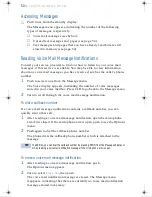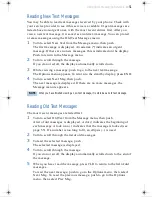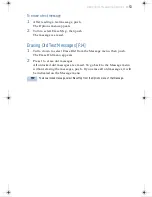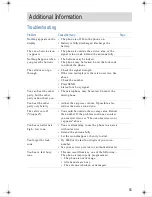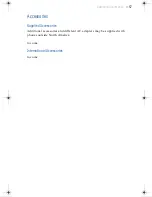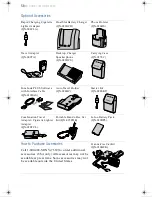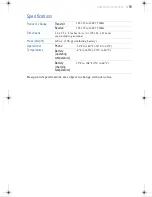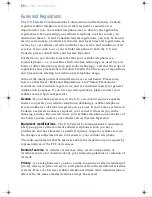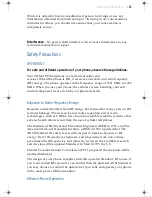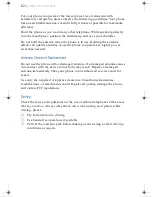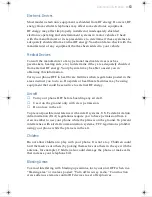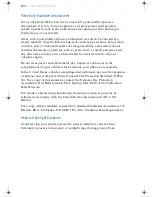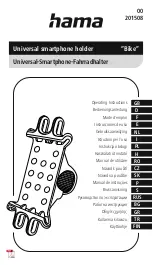
64
▼
Additional Information
Potentially Explosive Atmospheres
Turn your phone OFF when in any area with a potentially explosive
atmosphere. It is rare, but your phone or its accessories could generate
sparks. Sparks in such areas could cause an explosion or fire resulting in
bodily injury or even death.
Areas with a potentially explosive atmosphere are often, but not always,
clearly marked. They include fueling areas such as gas stations; below deck
on boats; fuel or chemical transfer or storage facilities; areas where the air
contains chemicals or particles, such as grain, dust, or metal powders; and
any other area where you would normally be advised to turn off your
vehicle's engine.
Do not transport or store flammable gas, liquid, or explosives in the
compartment of your vehicle which contains your phone or accessories.
In the United States, vehicles using liquefied petroleum gas (such as propane
or butane) must comply with the National Fire Protection Standard (NFPA-
58). For a copy of this standard, contact the National Fire Protection
Association, One Batterymarch Park, Quincy, MA 02269, Attn: Publication
Sales Division.
In Canada, vehicles using liquefied petroleum gas (such as propane or
butane) must comply with the Canadian Gas Association (CAN/CGS-
B149.2).
For a copy of this standard, contact the Canadian Standards Association, 178
Rexdale Blvd., Etobicoke, ON M9W 1R3, Attn.: Standard Sales Department.
Heat and Sunlight Exposure
Avoid leaving your phone exposed to direct sunlight or extreme heat.
Extended exposure to heat and/or sunlight may damage your phone.
capri.book Page 64 Tuesday, February 9, 1999 5:20 PM
Summary of Contents for CM-ZS300
Page 2: ...2 ...
Page 16: ...18 Getting Started ...
Page 34: ...36 Calling a Saved Number ...
Page 52: ...54 Using Short Messaging Services ...
Page 63: ...Battery Legal Statement ...
Page 64: ...66 Additional Information back cover 800 Numbers Web Address ...
Page 65: ... 67 ...

